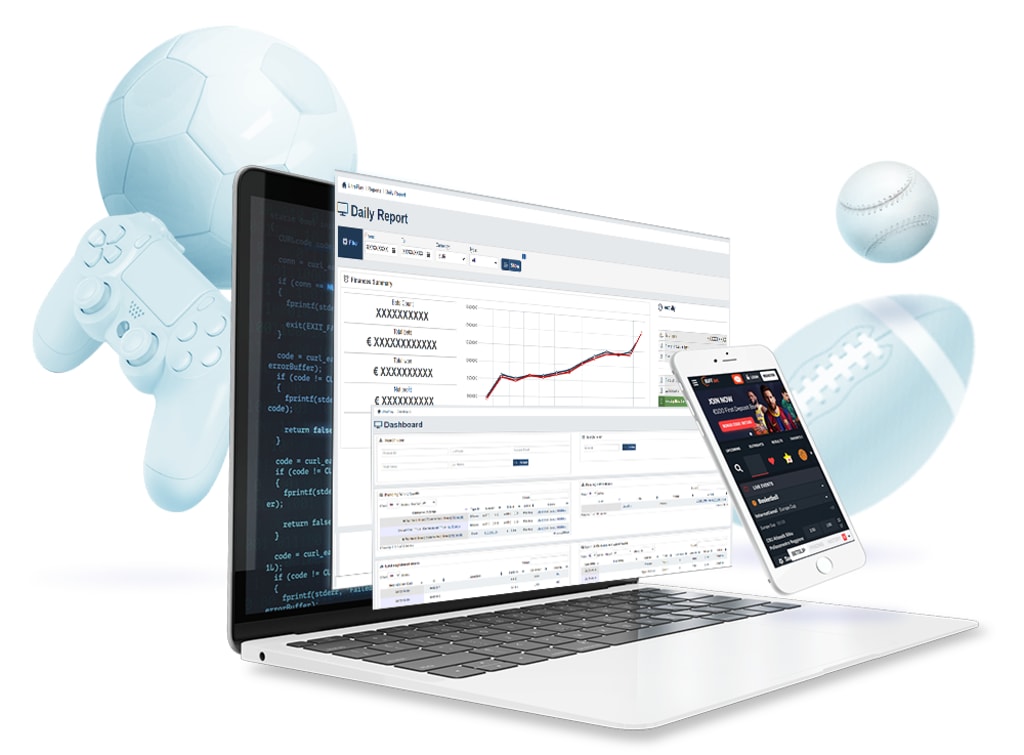What Does the Future Hold for Sports Betting?
white-label sports betting software

Sports betting has been increasingly popular in recent years. While it was originally illegal in many nations throughout the world – and considered a fringe hobby in those that did – it has recently acquired acceptance in the Western world. In 2023, the company is expected to be worth around $218 billion, according to the most current estimations.
How did it amass such a massive following in such a short period of time? Staying on the bleeding edge of technology is one way to do this. The global marketplace has given online sports betting software providers from around the world access to new audiences, while technology advancements (such as in-play betting and up-to-the-minute stats, to mention a few) have improved the whole experience.
Who knows what the future holds for sports betting because the world of technology never sleeps, and neither do the desires of the next generation of techies. Or maybe we do? Virtual Reality (VR) and Augmented Reality (AR) appear to be the next step forward, with the potential to take sports betting to a whole new level of fun and excitement. Let's take a look at some of the predicted sports betting trends for the near future.
Competitive Gaming is Available
The growth in competitive gaming interest is occurring among people of gambling age (or soon to be gambling age) at the same time that casinos and, more lately, white-label sports betting software are becoming more popular than ever. A number of companies are attempting to capitalise on this trend by providing peer-to-peer wagering platforms that allow individuals to participate in video games against one another. Although the regulatory and logistical obstacles are severe, the user base is likely to be underserved and of great value. While adoption is slow, scalability and the liquidity that comes with it may be difficult to achieve.
Micro-betting
Micro betting is a prominent area of research that frequently employs machine learning. Micro betting is when you place a bet on a short-duration, simple-to-follow event. While more experienced bettors and fantasy gamers may enjoy betting on the overall points, assists, and rebounds of two basketball players, many others would rather bet on Michael Jordan's next three-point try. In the near future, betting on individual at-bat results in MLB games is expected to become highly popular. While this format involves substantial modelling and is easier to implement under a Free-to-Play or lottery model, the theory is that the early movers will win over a huge number of new consumers in valuable user bases.
E-sports
Esports, on the other hand, aren't exactly a new concept. The first video games were released in the 1940s, and tournaments to determine who was the best player were held in the 1970s. E-sports, on the other hand, did not gain popularity until the twenty-first century. In 2011, the first platforms dedicated to streaming Esports matches debuted, followed by e-sports betting not long after. People nowadays can watch their favourite Esports players compete from the comfort of their own homes and bet on their success. As games become more complex, tournaments become more significant, and prize pools grow larger, this approach will only become more popular.
Free-To-Play (F2P)
Free-to-play games and contests do not require real money to play or enter. Because obtaining a gaming licence is such a costly and time-consuming process, many businesses opt to operate under this framework. In fact, because most US jurisdictions still prohibit the use of mobile sports wagering software, F2P is often a more enticing choice than packing up and flying to London or Malta, though some people do. Entrepreneurs who choose the free-to-pay route can gain customers, demonstrate product-market fit, and then determine how to efficiently monetize their Unique Selling Proposition.
Peer-to-Peer
Peer-to-peer betting, whether through traditional international betting exchanges or some other mechanism, is unquestionably the wave of the future, albeit the journey from here to there is exceedingly unpredictable. The 1961 Wire Act, for example, prohibits the transmission of money or information across state lines in order to aid a wager. Even if both jurisdictions permit internet gambling, a customer in one state cannot place a wager with a customer in the other. Furthermore, only around half of all states allow peer-to-peer betting within their borders. While maintaining intra-state liquidity pools may be a viable alternative, it's unclear whether a lack of client knowledge will continue to be a stumbling hurdle.
Virtual Reality and Augmented Reality
Virtual reality (VR) and augmented reality (AR) are already making inroads into the sports betting industry, and it's only a matter of time until they take over completely. There are now only a limited number of tickets available for live stadium matches, resulting in a crowded and unpleasant atmosphere. But what if you could use virtual reality and augmented reality to simulate being on the field or court from the comfort of your own home? Only the online sports betting industry has the financial clout and motivation to carry this off. As a result, virtual reality and augmented reality will become increasingly important.
Final Thoughts
The sports betting industry is constantly evolving. Whether it's the types of sports bet on, how bets are placed through customised or white-label sports betting software, or how data is perceived, the business will change dramatically in the next few years as it attempts to innovate and attract new clientele in droves. First and foremost, the vast majority of them are essentially predictions for the future, and no one can ever know what the future holds, which is part of what makes it so intriguing.
Smartphones were science fiction 20 years ago, but we can't imagine life without them now, and they've changed sports betting forever. In the following years, the sports betting business is expected to explode. Technology is a vital component of the puzzle, but it is far from complete. It will need a great deal of strategic thinking to properly combine learnings and assets from established markets while also respecting the uniqueness and adaptability of the sports betting scene in different areas of the world.





Comments
There are no comments for this story
Be the first to respond and start the conversation.